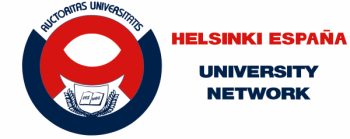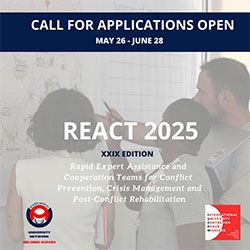Universities for Poverty Alleviation

Poverty Eradication
Eradicating global poverty; the first of the Sustainable Development Goals set by the United Nations for 2030.
Although the global poverty rate has halved since 2000, in developing countries, still 1 out of 10 people subsist on $1.90 a day, and millions more earn just a little more than this amount daily.
Moreover, poverty goes beyond the lack of income and resources to ensure sustainable livelihoods: it is also a human rights concern. Hunger, malnutrition, lack of decent housing and limited access to other basic services such as education, health and social inclusion are some of the different manifestations of poverty.
UPA Proyect
From Helsinki España we are committed to working for the eradication of poverty through real solutions, and for this purpose we have created our UPA project. Likewise, we are confident that human rights education is a fundamental tool to raise society’s awareness on the need to work for this cause. Therefore, in 2009, together with 35 other Universities at the New York International Forum on poverty eradication from campuses, we decided to launch the initiative “Universities for Poverty Alleviation (UPA)”, an online platform that brings together and disseminates a Global Academic Mobilization from University Social Responsibility for poverty alleviation.
UPA is a meeting place for networking, for dissemination and inter-university action offered to Universities around the world interested in reducing poverty.
General Objectives of the UPA Project
To disseminate the work being done by the University to alleviate poverty, and to promote new university lines of work in this sector.
-
To make the university community even more aware of the effects of poverty in the world, its reasons, and solutions.
-
To encourage the introduction of subjects or cross-cutting themes related to Human Rights and the Human Dimension of poverty in the curricula.
-
To promote that teachers and students have a responsible training on the shortcomings and inequalities in society, especially those related to poverty around the world.
-
To guide a large part of the research in the pursuit of realistic solutions to eliminate poverty, which will contribute to effectively support public and/or private action.
-
To support the information and talent exchange and the joint work of universities around the world.
-
To promote good practices, joint projects and unite synergies between universities, networks, companies, governments and civil society.
-
To facilitate access to higher education for those in need through scholarships or other means of assistance.
-
To involve companies and governments together with universities in the realization of economic and social development projects for sustainable growth, within or outside their sphere of action
International Congress Of Rectors Universities For Poverty Alleviation
To enhance academic mobilization, it was considered essential to hold face-to-face meetings of representatives of the University government to establish the lines of joint interest of the international university community, in relation to the challenges of our society, to obtain greater commitment from the University government, and to promote the Platform, so an INTERNATIONAL CONGRESS OF RECTORS UNIVERSITIES FOR POVERTY ALLEVIATION (UPA) was convened.
It was held in 2015 with a total of 64 congress participants, 53 rectors and 19 countries. This led to important conclusions to be included in the 2016-2017 University Action Plan.
-
Establish a compulsory course for all students entering the University in which the great moral challenges facing today’s society are addressed: poverty, climate change or international terrorism. This course would be taught by professors from the University, specialized in each subject.
-
Introduce the possibility for all graduating students before leaving the University to make a voluntary commitment that would be the beginning of a responsible and morally acceptable professional career with their environment.
-
Promote multidisciplinary innovation ecosystems for poverty alleviation, sustainable development and inequality, encouraging, for example: student associations; curricular and extra-curricular internships, final theses; doctoral theses; research lines; open laboratories with access to students and researchers for the resolution of specific problems; open seminars with presence of experts with diverse knowledge…
-
Institutionalize university volunteering with some or other characteristics, recognizing it with academic credits.

